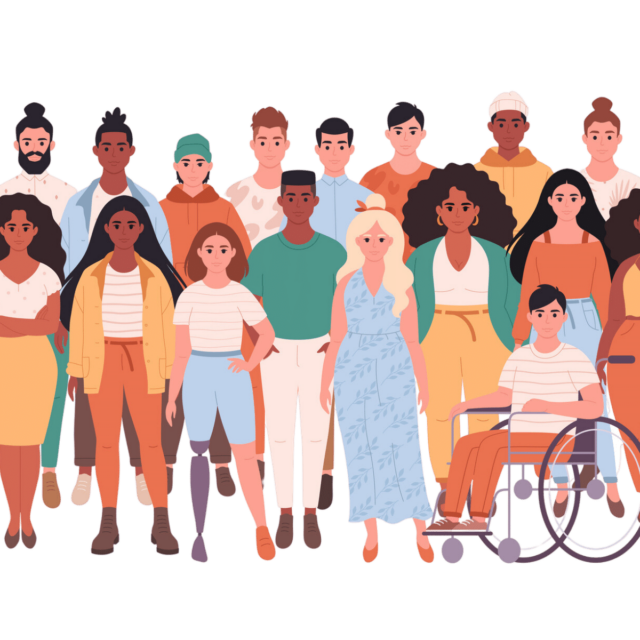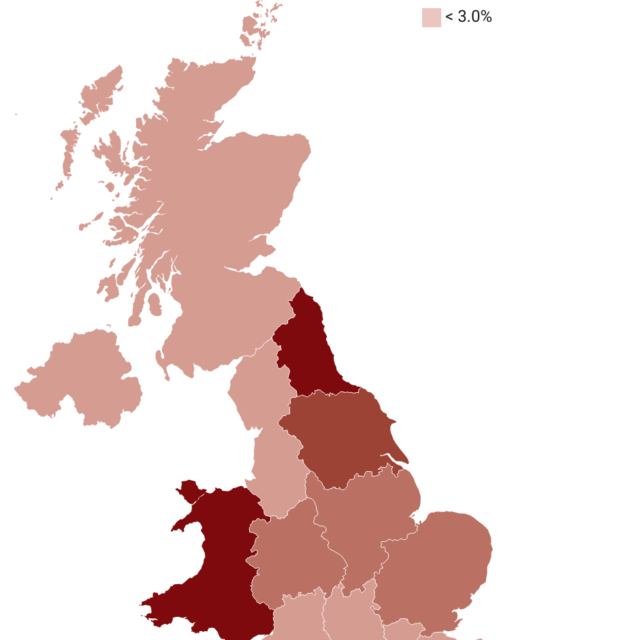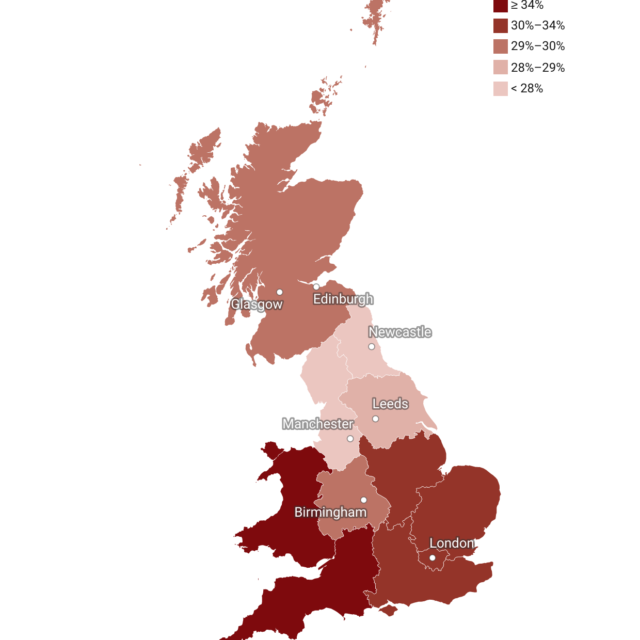Child Language Brokering: What It Is and How It Is Experienced By Migrant Families
Migrant parents with limited knowledge of, or fluency in, English may rely on their children for translation and interpretation to navigate everyday life, accessing services, and official migration processes. Professor Adrian Pabst spoke with Dr Domiziana Turcatti and Ekaterina Aleynikova about how these practices are experienced by migrant families, why they are contested and what policies would help tackle the language inequalities facing migrant children and parents.

What is language brokering?
Language brokering is the process of facilitating communication, translating, and interpreting between different parties who do not share the same language (Tse, 1995). For migrant parents, lack of fluency in English and limited access to translators and interpreters can result in their children taking on translation and interpretation responsibilities (Crafter & Iqbal, 2022).
In Domiziana’s doctoral research on the experiences of Colombian families who first moved to Spain and then to London, following the 2008 crisis using Spanish passports, some young people provided their parents with interpretation in various contexts. These included hospital appointments, parent-teacher conferences, or meetings with social care workers. Children and teenagers would routinely translate letters from their parents’ employers, their local councils, or healthcare services. In some cases, young people helped their parents apply for the EU Settlement Status to maintain residence in the UK following the end of freedom of movement in 2021 (Turcatti & Vargas-Silva, 2022).
In the UK, migrant parents face several challenges when it comes to learning English. They may not qualify for free, high-quality English for Speakers of Other Languages (ESOL) accredited courses (Learning & Work Institute, 2022). When they do, parents may not be signposted to this provision (Pomati et al., 2020). Furthermore, parents may not have the time to attend ESOL accredited courses or the free English community classes provided by charities due to work commitments and childcare responsibilities (Turcatti, 2023; Pomati et al., 2020; Refugee Action, 2017).
In contrast, migrant children and young people typically learn English faster (or at least are expected to) by virtue of being in education. In our recent research with Refugee Education UK and the Centre for Equalities and Inclusion at the Office for National Statistics (ONS) exploring the experiences of displaced young people in England, some participants highlighted how their English language proficiency, even if limited, was still higher than that of their parents:
“I didn’t know English. I had an extremely low level of it, so talking was incredibly difficult, so, we communicated with my host family using a translation tool. It was hard, and my mum, she doesn’t know English at all. So, I at least tried to speak, but she could only communicate with a translation tool.” (Translated interview, young person, female, Ukraine Humanitarian Scheme, living in the UK for one to two years) (ONS, 2024, p. 10).
How do young people and their families feel about language brokering?
Child language brokering is a contested practice in the UK, where it is typically perceived to be against children’s best interests (Crafter & Iqbal, 2022).Yet child language brokering presents several benefits. First, it allows migrant families to access services, support, and networks that may be otherwise out of reach (Sime & Fox, 2015). Secondly, it can foster family solidarity, as it is viewed as a form of care (Crafter & Iqbal, 2022). Young people may also come to appreciate the bilingualism and interpersonal skills they acquire in supporting their families navigating institutional contexts and relationships with authority figures (Crafter & Iqbal, 2020, Crafter, 2018).
However, language brokering does create some challenges. Young people may feel uncomfortable interpreting and translating, particularly when lacking confidence in their bilingual skills (Crafter & Iqbal, 2020). In Domiziana’s doctoral research, some young people highlighted how challenging it was for them to cope with the pressure of interpreting in highly consequential settings, such as during meetings with local authority case workers to discuss temporary accommodation arrangements. In our study on the experiences of displaced young people in England, some participants had to miss school in order to provide translation support to their families for health or asylum-related appointments (ONS, 2024, p. 23). This also meant that they would acquire in-depth knowledge about their parents’ health conditions and their families’ asylum process, aggravating their concerns and worries about the future.
Similarly, parents may feel uneasy about relying on their children for translating and interpreting. At the upcoming BAAL Cambridge University Press Seminar on language and onward migration hosted by the University of Westminster, Domiziana is presenting on instances where Colombian parents would be told off by teachers for making their children miss school to provide interpretation support and where their children would refuse to translate or would interpret school communications incorrectly to their advantage. This situation creates feelings of guilt, disempowerment, and inadequacy among migrant parents. As put by one of the staff members of a London-based charity run by and for Latin American migrants interviewed by Domiziana in 2021:
“I think the parents sometimes… they even avoid to ask them [their children], because they feel guilty they cannot speak the language and sometimes the children begin to force them [and tell them] ‘you should speak the language’”.
What policy changes are needed to support families in these situations?
A number of policies could support families in these circumstances:
- Enhance access to high-quality ESOL accredited courses provision both in terms of eligibility criteria as well as supply. Policies widening eligibility criteria are needed as currently some migrants, due to their visas and immigration status, are excluded from accessing free, high-quality accredited ESOL courses (GLA, 2023). ESOL provision also needs to be flexible and accommodate parents’ work schedules and childcare responsibilities. Signposting to existing provision is also important for people who may not be aware of their entitlements, and of how and where to access free ESOL provision. Importantly, migrants need to be referred to ESOL providers who are geographically near their homes, as transport costs can be a barrier, particularly considering the labour market inequalities migrants face and the cost-of-living crisis (Argirova, 2023).
- Enhance both availability of and access to translation and interpretation for key services in a range of languages. Availability of interpretation for healthcare appointments and in other institutional settings (e.g., schools, local authorities) can vary depending on the language needed, as our research participants reported: “In England, the basic problem is that for Spanish speakers there are no translators, it is very complicated…For us, as Latinos, it is a little bit more than a little bit. There are Indian translators and there are Arab translators because they work there.” (Translated interview, parent or carer, seeking asylum) (ONS, 2024, 31). Furthermore, migrants may face other barriers in accessing interpreters, including, for example, not knowing that they can request interpreters when accessing healthcare, how to do so, or not being provided with a translator even when having requested one (Turcatti, 2021). Policies tackling inequalities in access to translation and interpretation are therefore needed.
- Provide consistent, sustainable, and sufficient funding to third sector organisations. Third sector organisations often fill gaps in provision of social services (Garkish et al., 2017). Our evaluation of the Health and Wellbeing Initiative of the London-based charity IRMO (Rostron, 2023) has shown that specialised interpretation and translation in Spanish and Portuguese for medical appointments or health-related documents was essential for many of IRMO’s service users to access healthcare. Charities can provide migrants with volunteer interpreters, free unaccredited community ESOL courses, or support with translating documents and letters (Turcatti, 2021). However, the third sector in the UK is currently facing financial uncertainty (Palmer, 2023), with charities supporting migrants and refugees being at capacity (Grove-White & Kaye, 2023). Clearly, to be able to continue tackling language inequalities, third sector and community organisations need access to consistent and sufficient funding.
Child language brokering is not an inherently harmful practice. Yet it is not the solution to the structural language inequalities affecting migrant families. Enhancing access to ESOL courses, providing qualified interpreters and translators, and supporting third sector organisations are essential measures to support migrant families and ensure young people are not overburdened by interpretation and translation responsibilities.

















